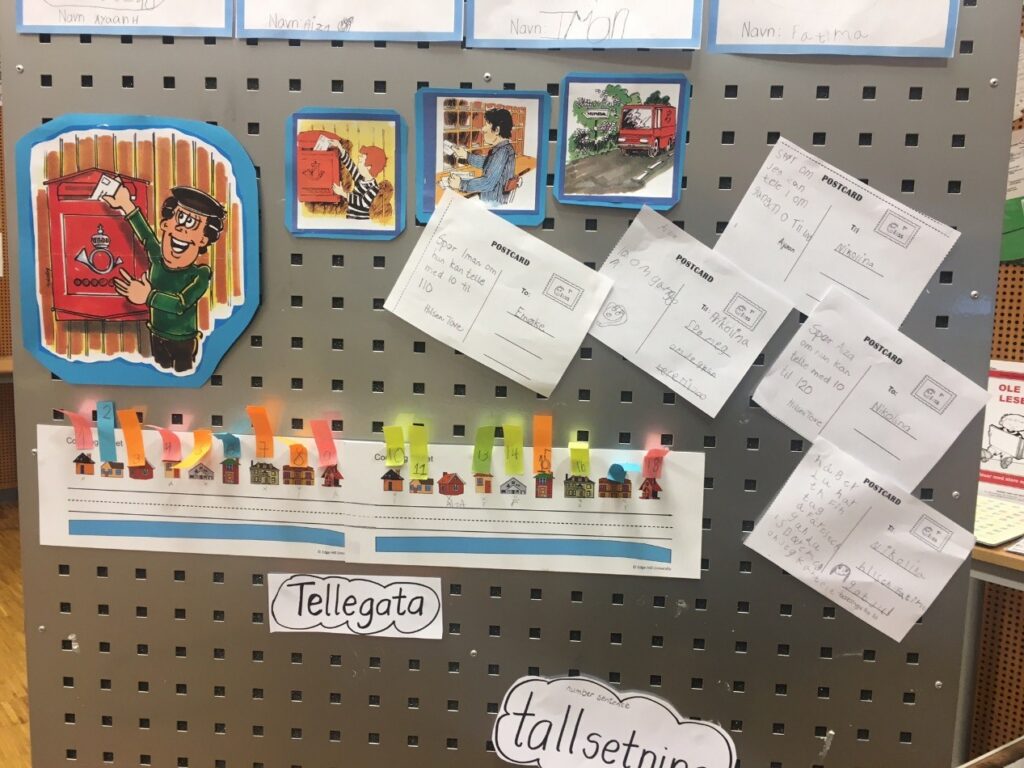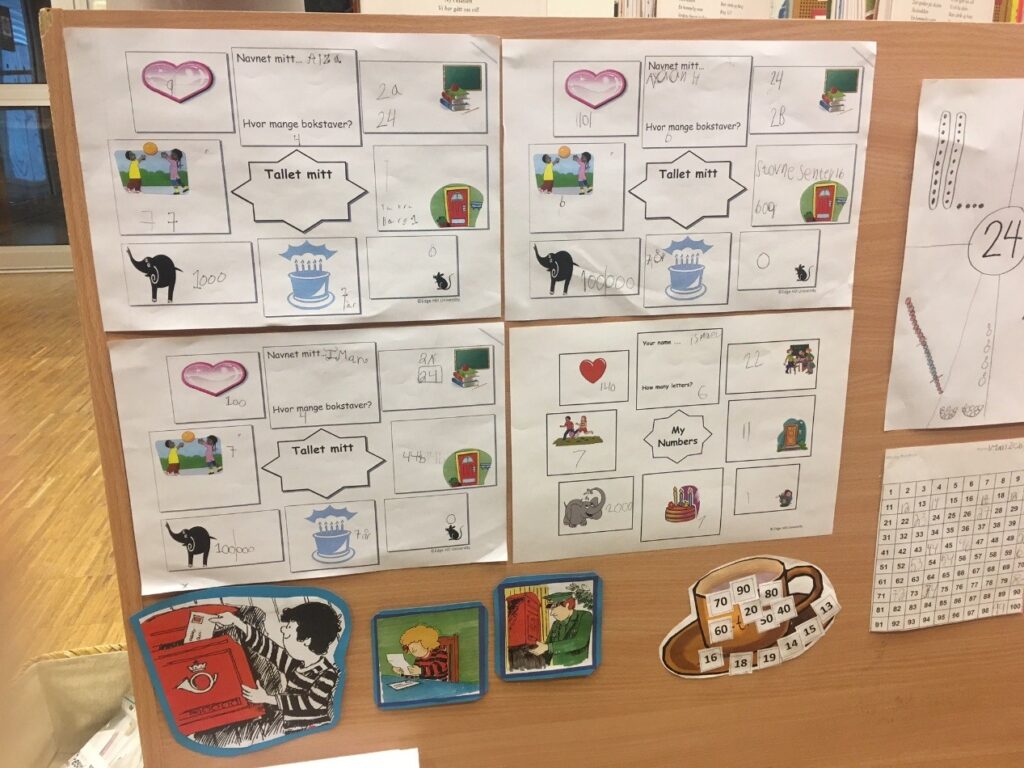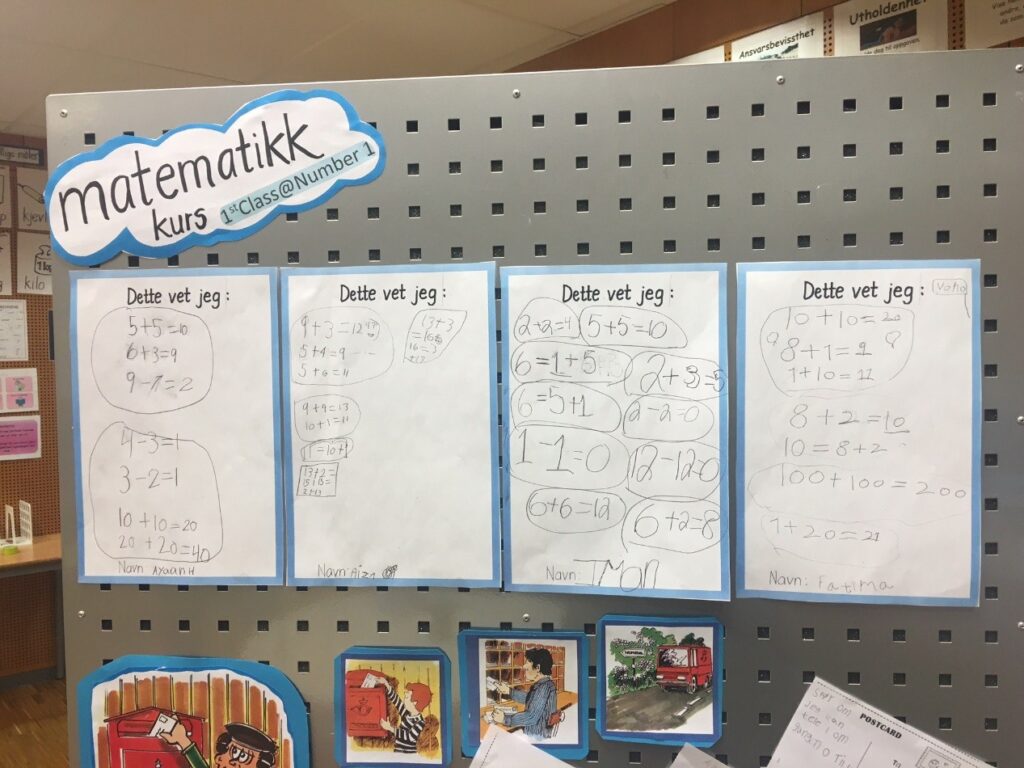


The Every Child Counts team has worked with the City of Oslo Education Agency in Norway to train a group of teachers to use the 1stClass@Number programme, a light-touch intervention for pupils in Years 2-4 that uses a Post Office theme to bring mathematics to life.
Sinsen Skole (school) were so impressed with the programme that they sent all their 53 teachers to visit 1stClass@Number sessions in the South East of England. Teachers were welcomed by schools and given an opportunity to observe 1stClass@Number and Numbers Count in action.
The initial two term pilot proved to be very successful with children making an average of 14.8 months number age gains. The ECC team at Edge Hill University have now trained two 1stClass@Number trainers from the Education Agency in Oslo so that they can train other schools in their area.
Bjarte Rørmark, Assistant Director in Oslo’s Department of Educational Planning and Assessment, said: “The Education Agency in Oslo has, for some time, been looking for tools to help us improve numeracy skills among pupils who struggle. We are very much looking forward to cooperating with Edge Hill’s experts, and the experience so far has been both pleasant and of exceptional quality. We have high expectations of the results of this partnership.”
Nick Dowrick, Every Child Counts Director based in Edge Hill’s Faculty of Education, said: “We’ve worked closely with the City of Oslo Education Agency to ensure the training and materials reflect the Norwegian mathematics curriculum, and that any maths problems that arise from language are addressed. In the UK, for example, many children have trouble differentiating between 13 and 30 when spoken, and this can cause difficulties for them. Our training for Norwegian teachers takes these kinds of issues into account.
“We train the teachers in English, but the materials they use with the children are simple and universal so they work in any language.”
Teachers and teaching assistants in the UK will certainly recognise these resources!
“It’s great to have recognition of what we’re doing outside of the UK,” added Nick, “and the opportunity to reach and support more children who have difficulties with numeracy. The language may be different but the concepts – and the importance of understanding maths for everyday life – remain the same.”
The Every Child Counts team has worked with the City of Oslo Education Agency in Norway to train a group of teachers to use the 1stClass@Number programme, a light-touch intervention for pupils in Years 2-4 that uses a Post Office theme to bring mathematics to life.
Sinsen Skole (school) were so impressed with the programme that they sent all their 53 teachers to visit 1stClass@Number sessions in the South East of England. Teachers were welcomed by schools and given an opportunity to observe 1stClass@Number and Numbers Count in action.
The initial two term pilot proved to be very successful with children making an average of 14.8 months number age gains. The ECC team at Edge Hill University have now trained two 1stClass@Number trainers from the Education Agency in Oslo so that they can train other schools in their area.
Bjarte Rørmark, Assistant Director in Oslo’s Department of Educational Planning and Assessment, said: “The Education Agency in Oslo has, for some time, been looking for tools to help us improve numeracy skills among pupils who struggle. We are very much looking forward to cooperating with Edge Hill’s experts, and the experience so far has been both pleasant and of exceptional quality. We have high expectations of the results of this partnership.”
Nick Dowrick, Every Child Counts Director based in Edge Hill’s Faculty of Education, said: “We’ve worked closely with the City of Oslo Education Agency to ensure the training and materials reflect the Norwegian mathematics curriculum, and that any maths problems that arise from language are addressed. In the UK, for example, many children have trouble differentiating between 13 and 30 when spoken, and this can cause difficulties for them. Our training for Norwegian teachers takes these kinds of issues into account.
“We train the teachers in English, but the materials they use with the children are simple and universal so they work in any language.”
Teachers and teaching assistants in the UK will certainly recognise these resources!
“It’s great to have recognition of what we’re doing outside of the UK,” added Nick, “and the opportunity to reach and support more children who have difficulties with numeracy. The language may be different but the concepts – and the importance of understanding maths for everyday life – remain the same.”
